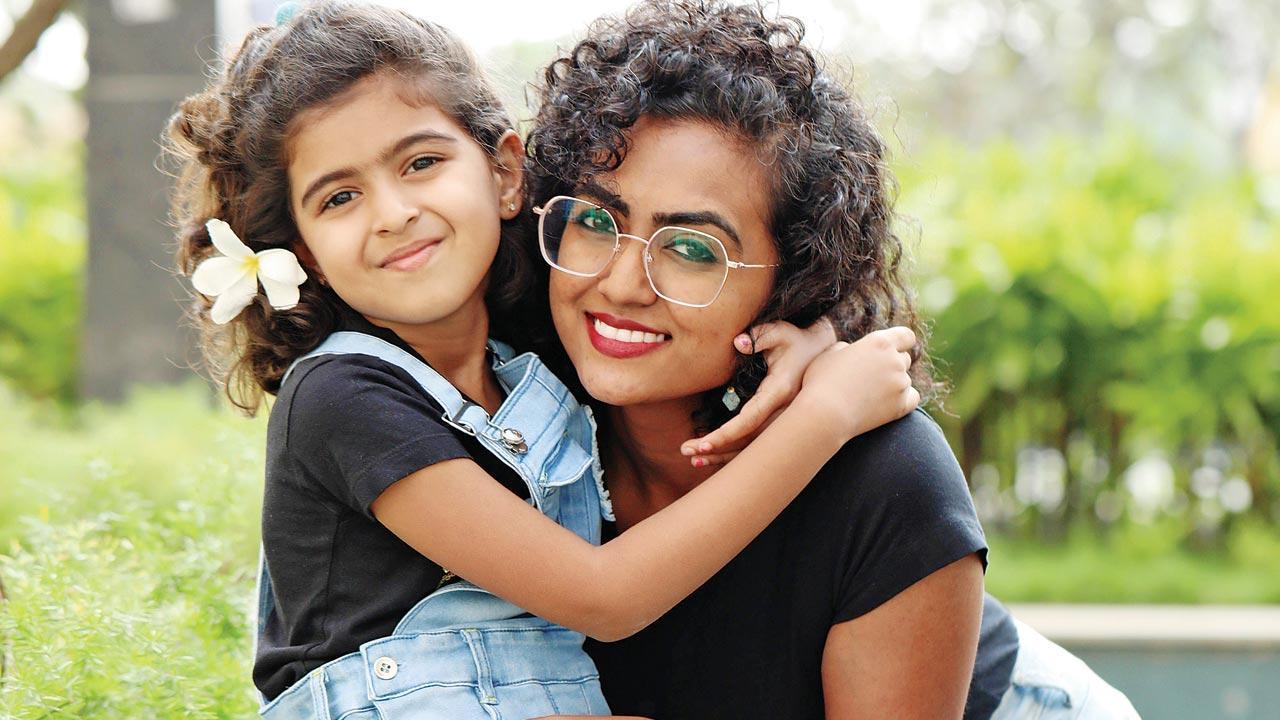A mum who has no-holds-barred conversations about sexual health and sexuality with her seven-year-old daughter on Instagram, wants to know what’s keeping parents from being candid with their kids

Swati Jagdish with her seven-year-old Maya
When this writer’s mum was pregnant with her younger sister, she remembers being fascinated by the growing belly and asking her, how the baby got inside. Words like “God” and “magic” were thrown around a lot, because who really has conversations about sex with their kids?
ADVERTISEMENT
But, one super cool mum from Coimbatore seems to think otherwise. Swati Jagdish, a sex educator and lactation counsellor is currently trending on Instagram for her videos, where she’s seen talking about sexuality, menstruation, and being queer with her seven-year-old daughter Maya.
“When my daughter was born, I took a break from my corporate job to look after her. I lost my parents around the same time. This was a difficult period in my life. I had nobody to share my motherhood and parenting concerns with. This led me to join some interesting groups on Facebook, where mothers would discuss everything they were going through,” recalls Jagdish. Soon after, she started a WhatsApp group for mothers in her home city. “We’d organise sessions on breastfeeding, how to use baby carriers, and dealing with post-pregnancy-stress, among other things,” she says.
One thing led to another, and Jagdish eventually started her own NGO, Coimbatore Parenting Network. During this time, she also became a lactation counsellor. “When I’d visit colleges to give lectures to students, I’d often see them giggling and laughing, or feeling embarrassed when talking about breasts or breastfeeding.”
That, she remembers, was a turning point in her career.
“I realised that there was a lot of stigma attached to discussing body parts,” says Jagdish, 34, explaining why she trained to become a certified sex educator.
In 2016, when Maya was still a toddler, Jagdish started an Instagram page, @mayas_amma, to document her parenting journey. But, with Maya growing up and asking her “difficult” questions, as most kids are wont to, she realised that she should use the platform to help other mums, struggling with this experience.
“Sexuality isn’t just about sex. It’s also the way your child feels about their developing body, and how your child understands and expresses feelings of intimacy, attraction and affection for others. For Maya, these concepts were natural, because she was exposed to them at an early age,” says Jagdish. She suggests that parents begin by talking about body parts, and then help the kids understand the difference between good and bad touch, where they can get naked and in front of whom, and how to react to situations that make them feel uncomfortable. “They may not understand these terms logically at first, but as they mature, they begin to see and comprehend better.”
Children, she says, are naturally inquisitive. By the time they are five or seven years old, they already have a lot of questions. She remembers this one time, when Maya saw a gay marriage on television, and asked her mum, “Why are these two men getting married?” Jagdish went on to casually speak about the concept of queer love and the LGBTQIA+ community. By the end of the conversation, she asked her daughter again, if it was acceptable for two men or two women to marry. “She immediately responded, ‘Yes, it’s perfectly fine because you can love and marry whomever you want.’”
Jagdish says that over the years, she and her daughter have developed a strong and open relationship. “Sex education is more about what parents need to know, rather than what their child knows,” she says. “Children are aware of these concepts because they are exposed to them through friends, schools, films and other media. However, it is up to the parents to create a relationship in which their child can come and talk to them about it first.”
Also Read: Covid-19: Are zoos and national parks doing enough to keep animals safe?
Notes for parents
. Once your child/toddler touches their private parts, consistent conversations on private parts privacy and when to touch one’s private parts, need to take place.
. Help them understand the difference between good and bad touch.
. Normalise talking about homosexuality, and teach them that loving relationships are beyond gender.
. Recognise and respect your child’s boundaries.
Courtesy: @mayas_amma, Instagram
 Subscribe today by clicking the link and stay updated with the latest news!" Click here!
Subscribe today by clicking the link and stay updated with the latest news!" Click here!






